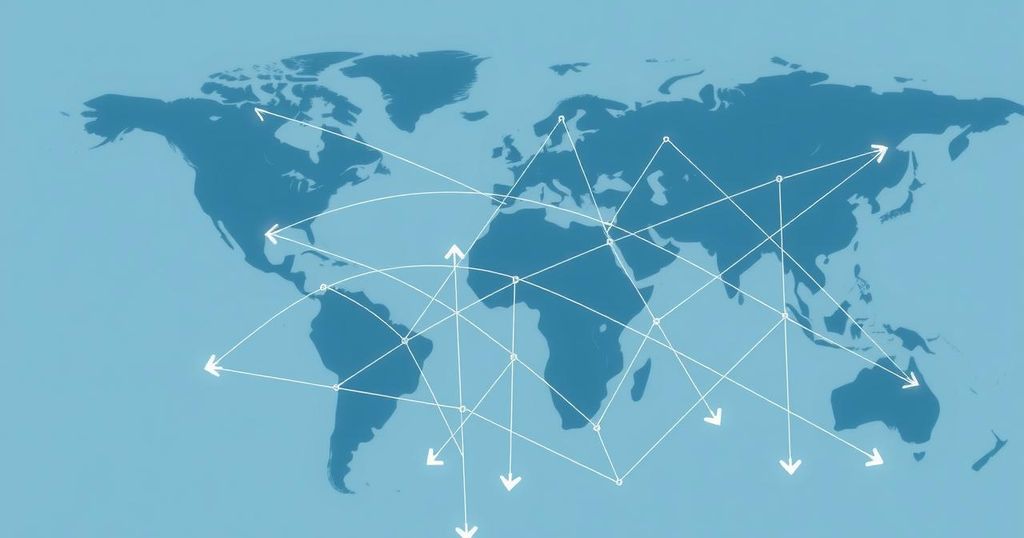Indian-American Lawmakers Condemn Trump’s Tariffs as Reckless and Self-Destructive

Indian-American lawmakers criticize President Trump’s 26 percent reciprocal tariffs on India, branding them as reckless. They argue the tariffs will diminish the competitiveness of Indian goods, raise consumer prices in the U.S., and exacerbate economic uncertainty, urging leaders to engage in dialogue to mitigate these impacts.
Indian-American legislators and members of the diaspora have expressed significant concern regarding the reciprocal tariffs introduced by President Donald Trump, labeling them as “reckless and self-destructive.” The imposition of a 26 percent “discounted reciprocal tariff” on India has prompted calls for dialogue between U.S. and Indian leaders to mitigate the ensuing economic challenges.
President Trump’s announcement came as a historical measure aimed at countering elevated duties imposed on American products globally. He justified the 26 percent tariff, stating that the United States would charge half of India’s current 52 percent charge. This decision affects approximately 60 countries.
Lawmakers have voiced strong opposition, asserting that these tariffs could reduce the competitiveness of Indian goods in U.S. markets. Congressman Raja Krishnamoorthi emphasized that such blanket tariffs are detrimental to working families, suggesting they serve to offset tax cuts aimed at wealthier Americans.
Krishnamoorthi characterized the tariffs as financially taxing, especially in Illinois, where small businesses are already facing challenges. He urged Americans to call for an end to Trump’s tariff policies, arguing these measures do not strengthen the economy nor national security and could lead to recession.
Congressman Ro Khanna expressed disbelief at the abrupt nature of the tariffs, remarking that there appeared to be no strategy or consultation prior to their announcement. Khanna projected a rise in prices across various sectors, including automobiles and groceries, contributing to market uncertainty and potential recession concerns.
Dr. Ami Bera, another Indian-American Congressman, cautioned that the tariffs would ultimately affect consumers negatively, constituting a tax hike rather than a tax cut. Ajay Bhutoria, a former advisor to President Joe Biden, warned of corresponding impacts on trading partners, stating that the tariffs would likely compromise Indian exports and drive up consumer costs in the U.S., potentially increasing annual expenses significantly.
Wendy Cutler, Vice President of the Asia Society Policy Institute, highlighted the ramifications these tariffs could have on the U.S. economy, indicating they would disrupt global supply chains and incite responses from foreign partners. She noted the treatment of close allies as if they were rivals, which complicates economic relationships.
Although President Trump suggested that he could have imposed higher tariffs, Cutler and other experts predict substantial economic impacts, including slowed growth and increased consumer prices, urging international dialogue to alleviate the burden on both American consumers and Indian producers.
The imposition of reciprocal tariffs by President Trump has been met with strong criticism from Indian-American lawmakers and industry leaders, who argue it will adversely affect both nations economically. With rising prices and increasing market uncertainty, calls for dialogue and cooperation are imperative to navigate the potential ramifications of these policies on global trade and local economies.
Original Source: www.ndtv.com






